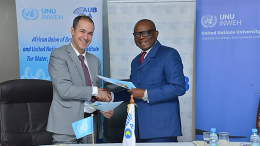Amid megatrends such as population growth and urbanisation, the planet is looking to have to feed 9.7 billion people by 2050 and 10.9 billion people by 2100 (United Nations Department of Social and Economic Affairs 2019), more than two-thirds of whom are going to live in cities (UN-Habitat 2020). During the Covid-19 pandemic, supply chain breakdowns have pointed to the dire need for more resilient solutions to food security (Tortajada et al. 2021). To deliver on the UN Sustainable Development Goals (SDGs) 2 (Zero hunger) and 11 (Resilient communities), the intersection of agriculture and real estate presents an opportunity to think about how best to sustainably house and feed an ever-growing population while looking to maximise the social, environmental, and economic value of related initiatives.
In resource-strapped and land-scarce Singapore, food security is high on the political agenda and the government has sought to invest in various food innovations such as vertical farming – high-tech vertically stacked farming systems - to feed the nation. In 2019, the government announced its ambitious “30 by 30” goal to produce 30 per cent of the country’s food by 2030 (MEWR 2019). Similarly, vertical farming has also been argued to hold promise for food security in high-density urban areas such as Jakarta where an agricultural crisis is a result of a booming urban population (Prawata 2013). For any innovation – particularly with respect to something that can get rather personal: food – to be successfully embraced, it is imperative to investigate its social acceptance for successful uptake of the technology. The proposed research explores the potential of vertical farming in revolutionising agriculture and real estate amid global challenges, looking primarily at the Singapore case and expanding the study to other areas including Germany and neighbouring Indonesia to investigate the transferability of the concept.
With the rapid growth of vertical farming initiatives in cities globally, we need to better understand how residents would perceive them and under what conditions they would be successful.
This project is funded by BoB Immobilienkonzepte GmbH.




